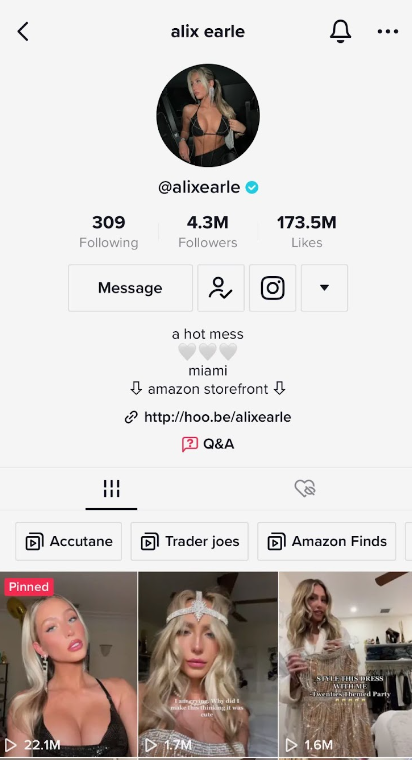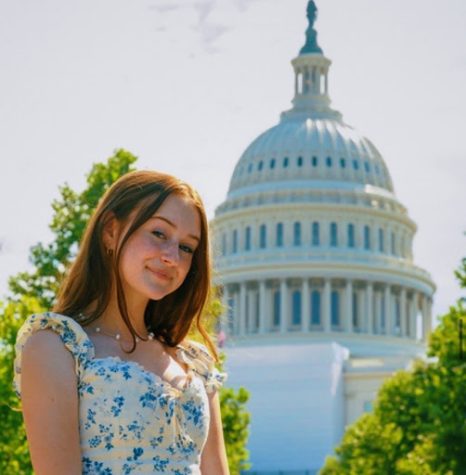The ‘Alix Earle Effect’: Has influencer culture gone too far?
February 2, 2023
If you’ve spent even five minutes on TikTok, you’ve seen the iconic white eyeliner and ‘Blue Eye’ filter that make up one of the most prominent creators of your FYP, Alix Earle.
Alix Earle rose to fame by posting ‘get ready with me’ videos, where she filmed herself doing her makeup and talking about her life as a student at the University of Miami. The first video of her’s that I came across was her getting ready for a pool party in October.
I hyper-focused, not only on the fact that she got to have fun at a sunny afternoon pool party in October but also on how her foundation applied perfectly onto her face and how there wasn’t a single mark or blemish to cover.
Beauty standards and trends have been around forever, causing teenagers to look at celebrities and public figures they admire and wish they could look like them. This is the basis of a new social media phenomenon, the ‘Alix Earle effect.’
Those who watch Earle’s videos see precisely what I saw. Perfect skin, perfect hair, perfect social life. The rise of ‘get ready with me’ videos has allowed people to see what products they use to make themselves feel fame-worthy, so since then, finding Earle’s most-used products on shelves has become nearly impossible.
After watching that fateful pool party video, I ordered the mascara she had used. To my surprise, it didn’t look the same on me as it did on her. That’s when I realized I had spent a whole $28.00 because I had seen an influencer use it.
It’s right there in the title: influence. It’s Earle’s job, but I think it’s gone too far. Young impressionable viewers tend to get the wrong idea while watching creators like this because before people like Earle were famous, they lived normal lives. They didn’t start out wealthy and famous, TikTok’s algorithm gave them a random chance to be a viral sensation.
48% of TikTok’s users are between the ages of 10 and 19, the prime age to be insecure and self-critical. This creates a culture of unrealistic expectations and standards to achieve.
I love to watch Alix Earle and live vicariously through her, but I hope her effects on today’s teenage culture don’t do more harm than good.







